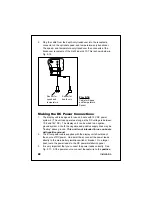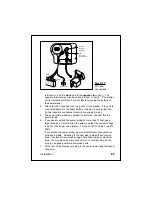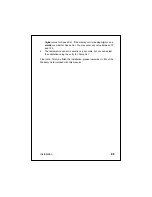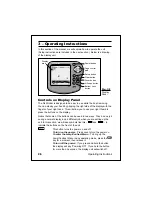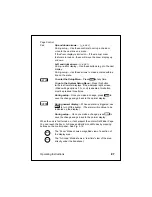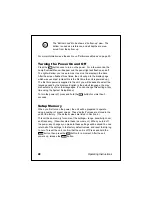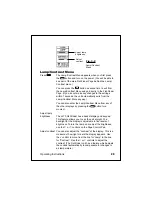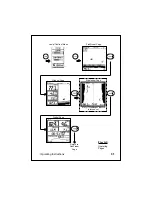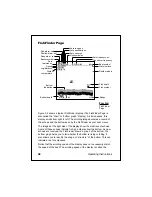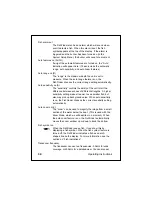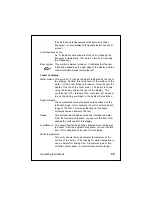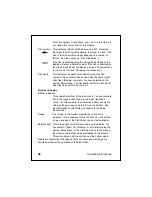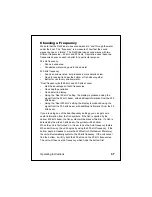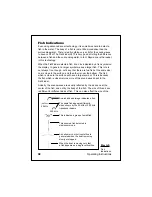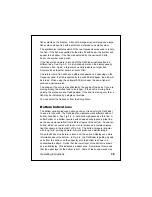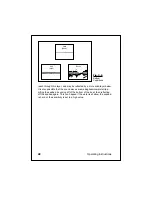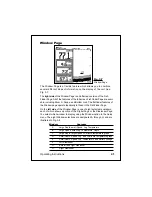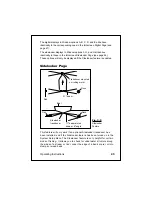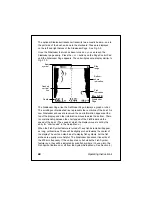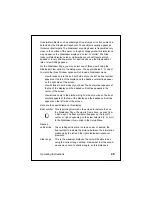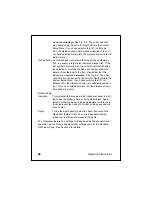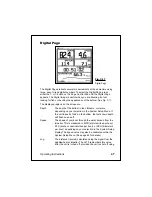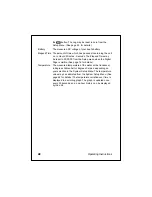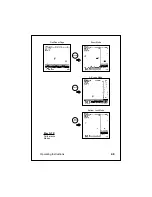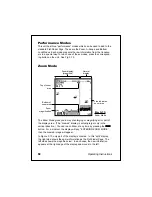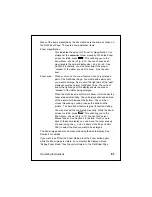
36
Operating Instructions
From the System Setup Menu, you can turn this item off
or change the units used for this display.
Fish symbol
This indicates that the FishFinder sees a fish. Generally,
the larger the fish symbol appears, the larger the fish. (The
size of the fish symbol actually depends on a number of
factors. See the section on “Fish Indications.”)
If the fish is detected using the narrow 200 kHz beam, the
display will show a filled-in symbol. If the fish is detected by
the
wide
50 kHz beam, the display will use a hollow symbol.
(For more on this, see “Choosing the Frequency.”)
Fish depth
This indicates the depth of the fish shown by the fish
symbol. This number will be shown using the same depth
units (feet, fathoms, or meters) you have selected on the
System Setup Menu. The fish depth indicator is turned off
when the fish symbol function is off.
Bottom of display
Bottom indication
This shows the bottom of the lake or sea. You can compare
this to the range depth shown in the lower right-hand
corner. (In this example, the checkered pattern shows the
unit is getting a strong echo return from the bottom. See
the information on the White Line feature in the Setup
Instructions.)
Range
The “range” is the maximum depth the unit is set to
measure. In this example, this is 100 feet. You can set the
range manually, or the FishFinder can do it automatically.
Bottom depth This is the depth of the bottom shown on the display. You
can select FT (feet), FA (fathoms), or M (meters) using the
System Setup Menu. If the FishFinder can’t tell how deep
the water is, the last known depth flashes on the display.
This will continue until the unit can see the bottom again.
Before we explain the other pages, there are some general things you
should know about the operation of the FishFinder.

